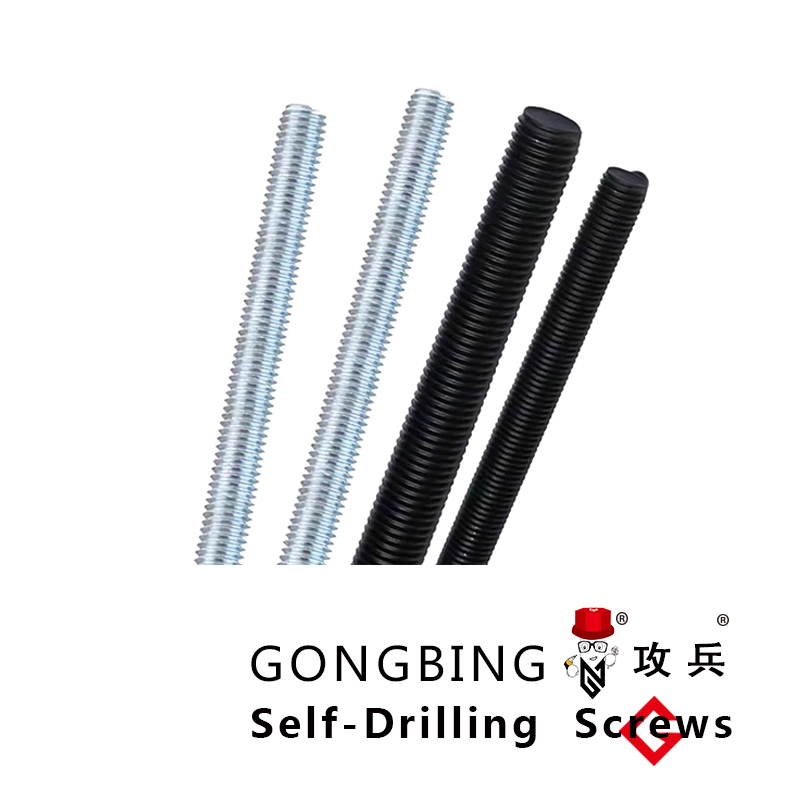Exploring the Benefits and Applications of Countersunk Self-Drilling Screws in Construction Projects
Understanding Countersunk Self-Drilling Screws
Countersunk self-drilling screws are essential fasteners widely used in construction, manufacturing, and various DIY projects. They combine the benefits of countersinking and self-drilling, making them particularly versatile and efficient.
What Are Countersunk Self-Drilling Screws?
Countersunk self-drilling screws are designed with a conical head, allowing them to sit flush with the surface of the material being fastened. Their unique structure includes a drill point at the end, enabling the screw to create its own hole as it is driven into the substrate. This feature eliminates the need for a pre-drilled pilot hole, significantly speeding up installation time and reducing labor costs.
Advantages of Countersunk Self-Drilling Screws
1. Time Efficiency The self-drilling feature allows these screws to penetrate through various materials without additional drilling tools. This capability expedites the installation process, making them ideal for large projects where time is critical.
2. Enhanced Aesthetics The countersunk design achieves a clean and professional appearance, as the head of the screw sits flush with the material surface. This is particularly important in applications where appearance matters, such as cabinetry and furniture making.
3. Stronger Holding Power Countersunk screws with their conical heads distribute stress more evenly across the surface of the material, leading to a stronger bond. This makes them suitable for heavy-duty applications, such as in steel and heavy wood constructions.
4. Versatility These screws can be used with a variety of materials, including metal, wood, and plastic. Their adaptability makes them a popular choice across various industries, from automotive to electronics.
countersunk self drilling screws

Applications of Countersunk Self-Drilling Screws
Countersunk self-drilling screws are often used in roofing, siding, and other building applications where metal sheets or panels need to be secured. In the automotive industry, they are employed to assemble parts in a way that provides both structural integrity and a neat finish. Additionally, they are commonly used in home DIY projects, allowing hobbyists and professionals alike to achieve precise and secure connections effortlessly.
Choosing the Right Countersunk Self-Drilling Screws
When selecting countersunk self-drilling screws, several factors should be considered
- Material Choose screws made from materials compatible with the substrates. Stainless steel screws are preferred for outdoor applications due to their corrosion resistance, while zinc-coated screws can be used for indoor projects.
- Size and Length Make sure to select the correct size and length to ensure optimal performance. The screw should penetrate deep enough into the material to provide a secure grip without compromising structural integrity.
- Thread Type The choice between fine and coarse threads depends on the materials being joined. Coarse threads are suited for softer materials, while fine threads work best with harder substances.
Conclusion
Countersunk self-drilling screws are a powerful fastening solution that combines efficiency, aesthetic appeal, and strength. Their design optimizes performance across various applications, making them a staple in construction and various manufacturing sectors. Whether engaging in a professional project or a DIY endeavor, understanding the benefits and specifications of these screws can significantly enhance the quality and speed of the work being done. As industries continue to seek ways to improve productivity and quality, countersunk self-drilling screws will undoubtedly remain a vital component in the toolbox of builders and craftsmen alike.
-
Weatherproof Plastic Expansion Anchors for OutdoorLitabaJun.06,2025
-
Sustainability in the Supply Chain: Eco-Friendly TEK Screws ProductionLitabaJun.06,2025
-
Load-Bearing Capacity of External Insulation FixingsLitabaJun.06,2025
-
Double Head Bolts: Enhancing Efficiency in Industrial MachineryLitabaJun.06,2025
-
Corrosion Resistance in Chipboard Screws: Coatings for Wholesale DurabilityLitabaJun.06,2025
-
Butterfly Toggle Bolts : Enhancing Structural ResilienceLitabaJun.06,2025
